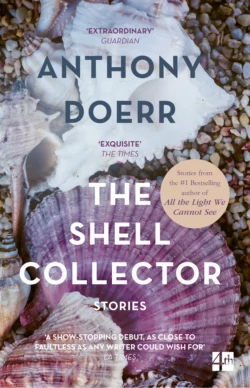The Shell Collector

Anthony Doerr
Тип: электронная книга
Жанр: Современная зарубежная литература
Язык: на английском языке
Стоимость: 619.36 ₽
Статус: В продаже
Издательство: HarperCollins
Дата публикации: 16.04.2024
Отзывы: Пока нет Добавить отзыв
О книге: The showstopping debut from the author of the #1 Sunday Times bestseller ALL THE LIGHT WE CANNOT SEEA blind man spends his days roaming the beaches of Kenya collecting shells, classifying them by feeling their whorls, spines and folds in his fingers. A young woman discovers that she can explore the inner world of an animal’s mind by touching its freshly dead body. A refugee from Liberia, who cannot escape the horrors that he has witnessed, finds salvation in the clandesitne act of burying the hearts of beached whales.In The Shell Collector Antony Doerr illuminates both the riotous dangers of the natural world and the rocky terrain of the human heart.